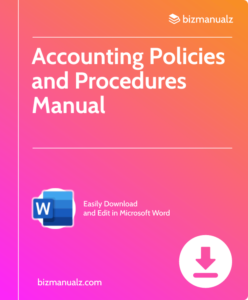How Many IFRS Rules are There?

Exploring the world of International Financial Reporting Standards (IFRS), we face one question: how many IFRS rules are there? The IASB established the IFRS accounting framework. It is a complete set of accounting regulations used around the world. They are often changing, so they provide transparency and comparability in financial reporting between countries and industries.
IFRS Accounting Rules
IFRS accounting rules are what govern international standards for financial reporting. This helps to make sure that financial statements across countries have consistency, transparency, and comparability.
For example, IASB stands for International Accounting Standards Board. and , there is a principles-based approach that focuses on substance over form.
Plus, there is fair value measurement and revenue recognition. These are two criteria for how to determine and report assets and liabilities. Also, there is financial instruments classification and measurement.
At present, there are over 16 IFRS standards about various parts of financial reporting. For instance, they address revenue recognition, lease accounting, and financial instruments.
This complexity can be challenging for organizations. But it is very important for them to understand the relevant IFRS rules to remain compliant and trustworthy in the global market. Learning all the IFRS rules is like trying to count the spots on a Dalmatian while it’s still wagging its tail.
These are some of the IFRS rules out there, and each one is made to deal with particular aspects of financial reporting. This is to increase global economic stability and boost investor confidence.
It’s essential to be aware of any changes or additions that the IASB makes to IFRS rules. This way one can be compliant and avoid potential mistakes in financial reporting.
Be sure to stay up to date with the newest in IFRS rules! It’s important to know how these rules can affect your business or organization. Non-compliance can lead to penalties and a loss of credibility. Don’t miss out on any important updates that can have a big impact on financial statements.
Pro Tip: You must stay up to date with IFRS rules. Consult professionals and look for expert advice to handle complex accounting demands smoothly.
Organizing IFRS rules is a very tough task – it’s like trying to put a straightjacket on a tornado!
Categories of the Rules to IFRS
To help make it easier to understand the crazy world of IFRS rules, let’s break them down into three categories: standards, interpretations, and framework. To illustrate, check out the table below!
| Category | Description |
|---|---|
| Standards | Core documents for accounting policies/principles. |
| Covers revenue recognition, lease accounting, etc. | |
| Interpretations | Clarifies how to apply the standards in specific situations. |
| Addresses technical areas that need guidance. | |
| Framework | Fundamental concepts for preparing financial statements. |
| Focuses on objectives, qualitative characteristics, etc. |
Plus, there are multiple standard-setting boards responsible for developing and maintaining the IFRSs, such as the International Accounting Standards Board (IASB). A great example of success in IFRS regulation is and organization that adapted their accounting practices accordingly. This kept stakeholders confident and showed the importance of knowing and following IFRS rules.
The complexities of IFRS rules can be better understood by categorizing them into standards, interpretations, and framework. This is a must-have skill in the business world today!
IFRS Number of Rules
Are you curious about the number of rules that govern the International Financial Reporting Standards (IFRS) framework? Let’s look into the specifics.
Here is a table with the number of rules, categorized by their corresponding standards:
| Standard | Number of Rules |
|---|---|
| IFRS 1 – First-time Adoption | 49 |
| IFRS 2 – Share-based Payments | 46 |
| IFRS 3 – Business Combinations | 32 |
| IFRS 4 – Insurance Contracts | 26 |
Though this table shows the number of rules for some important IFRS standards, there are more standards and guidelines. These standards cover topics related to financial reporting period and ensure accuracy of financial transactions. To gain understanding of these rules, here are some tips:
- Stay informed of changes to IFRS regulations. Consult official websites for international accounting standards.
- Seek help from qualified accountants or financial advisors if complex interpretations or applications of specific rules arise.
- Exchange ideas and experiences with peers in similar domains. Collaboration is key to understanding complex financial landscapes.
By following these suggestions, you will learn about IFRS rules and their importance in ensuring uniformity and comparability in financial statements worldwide. So when it comes to counting IFRS rules, just remember that even numbers can be unsettling.
IFRS Rules
The IFRS rules are vast, with many guidelines and standards for financial transparency and comparability. It’s unclear how many there are.
International Financial Reporting Standards (IFRS) are a range of accounting standards created by the International Accounting Standards Board (IASB). They cover recognition, measurement, presentation, and disclosure.
The IASB keeps developing and revising these standards to keep up with the changing financial world. So, the number of IFRS rules can change.
To stay compliant, businesses and individuals must stay updated on the latest developments. Sources such as the IASB’s website, or professional accountants and advisors, can help.
Frequently Asked Questions
1. How many IFRS rules are there?
There are currently 16 International Financial Reporting Standards (IFRS) issued by the International Accounting Standards Board (IASB).
2. What is the purpose of IFRS rules?
The purpose of IFRS rules is to establish a common set of principles and standards for financial reporting, ensuring transparency, comparability, and reliability of financial statements across different countries and industries.
3. Are IFRS rules applicable globally?
Yes, IFRS rules are applicable globally. Many countries have adopted IFRS as their national accounting standards, while others allow its use for listed companies or for specific industries.
4. How often are IFRS rules updated?
IFRS rules are regularly updated by the IASB. The updates are driven by changes in business practices, advancements in technology, and emerging accounting issues.
5. Are there any differences between IFRS and US GAAP?
Yes, there are some differences between IFRS (International Financial Reporting Standards) and US GAAP (Generally Accepted Accounting Principles). The main differences lie in the treatment of revenue recognition, inventory valuation, and financial statement presentation.
6. Where can I find the complete set of IFRS rules?
The complete set of IFRS rules can be found on the official website of the International Accounting Standards Board (IASB) or through authorized publications and databases specializing in financial reporting standards.

















It is easy to understand about the IFRS and the defence of the us gaap and ifrs I appreciate this website